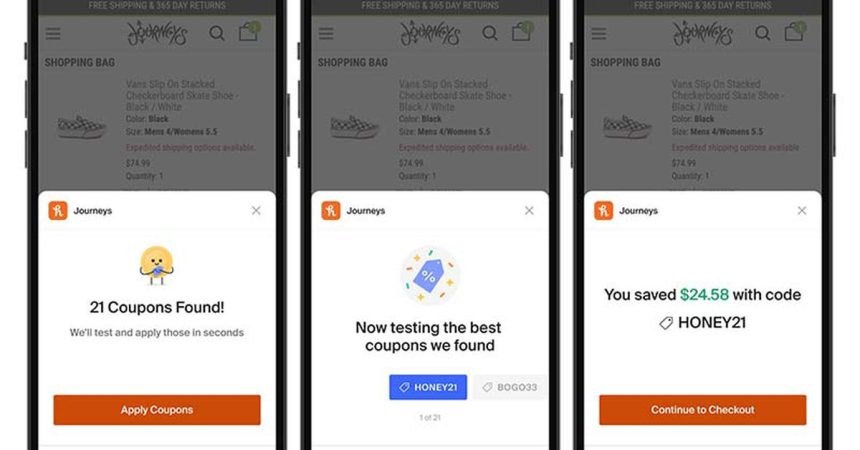The PayPal-owned browser extension, Honey, marketed as a convenient tool for online shoppers seeking better deals, has come under scrutiny following accusations of deceptive practices and exploitation of influencer marketing. YouTuber MegaLag, in a recent exposé, labeled Honey a “scam,” alleging that the extension not only fails to deliver on its promise of finding the best discounts but also actively undermines influencer earnings by hijacking affiliate revenue. This accusation strikes at the core of influencer marketing, a system built on trust and mutual benefit, and raises questions about the ethical implications of Honey’s business model.
Honey operates by prompting users with a pop-up window during online checkouts, offering to search for applicable coupon codes. While seemingly helpful, MegaLag’s investigation reveals that Honey often falls short, either failing to find any codes or presenting Honey-branded codes even when superior discounts are readily available through a simple online search. This raises concerns about the efficacy of Honey’s algorithm and whether it prioritizes its own commercial interests over delivering genuine savings to users. Furthermore, MegaLag alleges that Honey’s partnerships with retailers incentivize the extension to overlook better deals, potentially suggesting a conflict of interest that undermines its purported value proposition.
The most damning accusation leveled against Honey revolves around its handling of affiliate links. Influencers often rely on affiliate marketing, earning a commission for sales generated through unique tracking links embedded in their content. MegaLag’s video claims Honey intercepts these affiliate links during the checkout process, substituting its own tracking link regardless of whether it actually finds a coupon code. This maneuver effectively redirects the credit for the sale to Honey, depriving influencers of their rightfully earned commission. This practice, if proven true, not only represents a breach of trust but also constitutes a significant financial detriment to content creators who rely on affiliate revenue as a primary source of income.
PayPal, Honey’s parent company, has responded to these allegations, asserting that Honey adheres to industry standards, specifically citing “last-click attribution” as its guiding principle. This principle, however, doesn’t necessarily exonerate Honey. While last-click attribution assigns credit to the final click that leads to a sale, the question remains whether Honey’s intervention in the checkout process, by presenting its pop-up and potentially replacing the affiliate link, constitutes an unethical manipulation of the user journey. It’s arguable that by inserting itself into the transaction, Honey effectively becomes the “last click,” even if the user’s intent was initiated through an influencer’s affiliate link.
MegaLag’s accusations are not isolated incidents. Previous online discussions and social media posts have echoed similar concerns about Honey’s affiliate link practices. A 2021 Twitter post advised users to apply Honey’s discount codes in a separate browser to circumvent the affiliate link hijacking. Even more significantly, Linus Tech Tips, a prominent tech-focused YouTube channel, reportedly severed its sponsorship with Honey due to concerns over its handling of affiliate links. These instances lend credence to MegaLag’s claims and suggest a pattern of behavior that warrants further investigation.
The pervasiveness of Honey’s presence, amplified by extensive sponsored content across thousands of YouTube channels, underscores the potential impact of these allegations. The sheer volume of recommendations, combined with the ease of use of the browser extension, has led to widespread adoption of Honey amongst online shoppers. However, if MegaLag’s claims are substantiated, this widespread adoption could represent a significant exploitation of both consumers and content creators, with Honey potentially benefiting from misleading marketing practices and unfair appropriation of affiliate revenue. This situation highlights the need for greater transparency and accountability within the affiliate marketing ecosystem, particularly as browser extensions and other intermediary platforms become increasingly integrated into the online shopping experience. Furthermore, it underscores the importance of critical evaluation of seemingly helpful tools and the potential for conflicts of interest to undermine their purported benefits.



